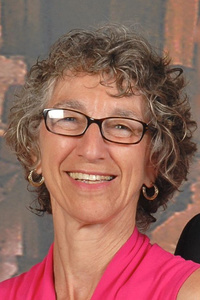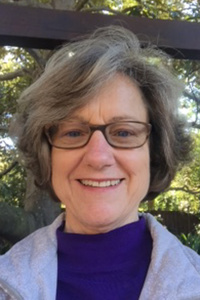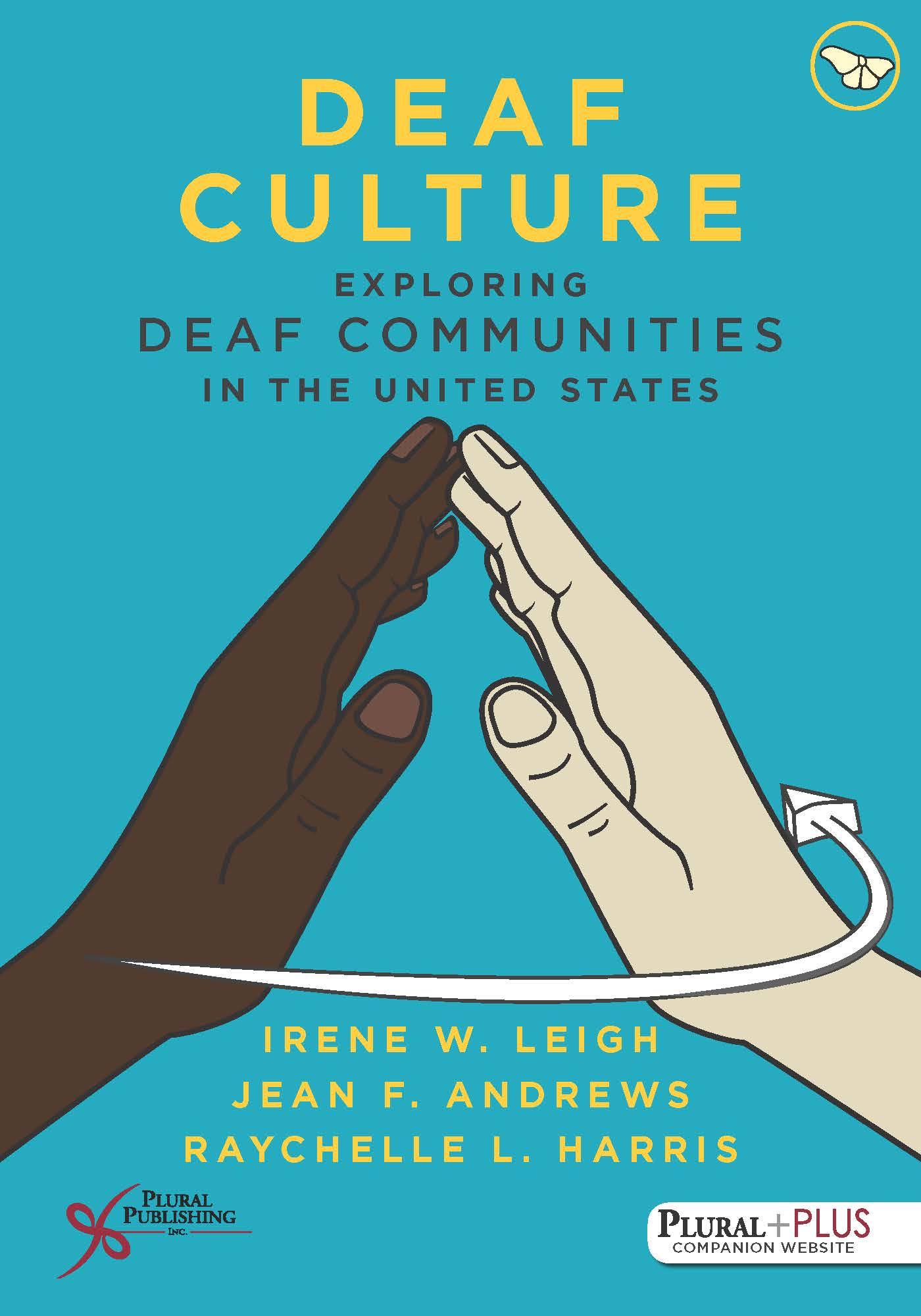
Deaf Culture: Exploring Deaf Communities in the United States.
First Edition
Irene W. Leigh, Jean F. Andrews
Details: 318 pages, B&W, Softcover, 7" x 10"
ISBN13: 978-1-59756-791-6
© 2018 | Available
A new edition of this text is available.
Overview
How does Deaf culture fit into education, psychology, cultural studies, technology and the arts? Deaf Culture: Exploring Deaf Communities in the United States addresses this through both theoretical and practical information. With the recognition of American Sign Language (ASL) as a bona fide language, the perception of Deaf people has evolved into the recognition of a vibrant Deaf culture centered around the use of signed languages and the communities of Deaf people.
This text also describes how rapid advances in technology, including the Internet as well as new visual and auditory technologies, have not only created opportunities for Deaf people to influence how technology can be used, but additionally has become a powerful force in influencing the behavior of Deaf individuals within diverse national and international societies. This has created opportunities for incorporating diversity and international perspectives into Deaf culture. Within each chapter are multiple vignettes, examples, pictures, and stories to enhance content interest for readers and facilitate instructor teaching. Theories are introduced and explained in a practical and reader-friendly manner to ensure understanding, and clear examples are provided to illustrate concepts.
In addition, students of American Sign Language and Deaf studies will find an introduction to possible opportunities for professional and informal involvement with ASL/Deaf culture children and adults. Deaf Culture fills a unique niche as an introductory text that is accessible and straightforward for those beginning their studies of the Deaf-World.
Key Features:
- Strong focus on including different communities within Deaf culture
- Thought-provoking questions, illustrative vignettes, and examples
- Theories introduced and explained in a practical and reader-friendly manner
- PluralPlus companion website with a word bank, glossary, resource list for readers and test bank and digital slides/presentations for teachers
- Written by Deaf and hearing authors with extensive teaching experience and immersion in ASL and Deaf culture
Reviews
"Deaf Culture: Exploring Deaf Communities in the United States is a comprehensive book that discusses the challenges and successes of persons who are Deaf in the United States. This review of the history of the language and culture of Deaf persons as well as contemporary use of technology that benefits both persons who are Deaf and others in society focuses on individuals and innovations that have supported success of individuals within Deaf culture."
—Martha J. Cook, PhD, CCC-SLP, Assistant Professor, Department of Communication Disorders, Southeast Missouri State University
"This book provides up-to-date information about the Deaf Community in a "reader-friendly" fashion. It covers many topics that are important to know about when trying to gain an understanding of the Deaf Culture."
—Rebecca Swenson, MA, Lecturer and Coordinator of Deaf Studies Minor, State University of New York at New Paltz
"This text provides a comprehensive view of the Deaf culture and community. The authors take readers on a journey through the lives of Deaf individuals from every perspective. They leave no topic out. It's refreshing to have a current reference on the topic that encompasses so much material and presents it in an educated, unbiased manner."
—Megan Gross, MSEd, NIC, Department of Speech Pathology and Audiology, Miami University
"This book offers a unique and fresh perspective on the exploration of Deaf culture and the development of one's Deaf identity. I feel that the perspective offered regarding the psychological aspects of Deaf identity, particularly when compared to other cultural minorities, is very beneficial to understanding Deaf culture."
—Dana L. Ulmer, AuD, CCC-A, Clinical Assistant Professor of Audiology, University of Florida
"This manuscript presents a thorough, careful consideration of issues surrounding the Deaf world. It will serve as an excellent text for students with no background in Deaf history, language, and culture."
—Steven Surrency, PhD, Communication Sciences and Disorders, University of South Florida
"I believe that the authors have excelled at making this text an accessible reference for individuals, such as myself, who are beginning their studies about Deaf culture. The information is presented in an objective way, and effortlessly combines research and theory with real-world stories, photographs, and reflective questions. This combination helped me internalize the concepts the authors discuss. The text also effectively highlights Deaf culture in many contexts, such as fine arts, education, technology, the workplace, and psychology. As a school psychology student, I appreciated the depth in which the authors discuss Deaf education and learning. They provide strategies for increasing learning in a classroom for Deaf students, such as good lighting or arranging desks in a semicircle, and I was also inspired to think about my own educational experiences. As an aspiring clinician, I can use this information to educate my clients about the importance of equal access in the classroom and how to use different learning and teaching strategies to achieve it."
—Yasmine R. Jassal, in American Annals of the Deaf (January 2017)
"The text is well-designed and easy-to-read. There are good illustrations, images, tables, thought-provoking questions, and personal stories. . . . And although multiple authors contributed to the writing, it reads as if from one voice, which makes it flow very nicely. The language is neither lofty or condescending, making it a good read for readers of all levels of education. The authors have done a nice job of demystifying the Deaf culture throughout the text. The selection of online additional resources makes it a good choice for instructors in Deaf Studies, Deaf Education, Interpretation, American Sign Language, Psychology, Audiology, and other related fields. The extra student resources provided would be an excellent guide for students throughout their courses, either as required or recommended reading and activities. The authors outstandingly directed the text toward their intended audience of Deaf Studies/Education and American Sign Language students. However, to gain a new perspective, it would be a good read for audiologists and other professionals who may automatically consider having hearing loss as a disabling condition. In this manner, they may gain new information to improve communication and counseling during professional interactions with Deaf persons."
—Ashley Dockens, Aud, PhD, in Ear & Hearing (2017)
Preface
Acknowledgments
About the Authors
Part I. Deaf Culture: Yesterday and Today
Chapter 1. Deaf Community: Past and Present
Chapter 2. Causes of Being Deaf and Auditory Innovations
Part II. Signed Languages and Learning
Chapter 3. American Sign Language
Chapter 4. Deaf Education and Deaf Culture
Chapter 5. How Deaf Children Think, Learn, and Read
Part III. Deaf Lives, Technology, Arts, and Career Opportunities
Chapter 6. Deaf Identities
Chapter 7. Navigating Deaf and Hearing Worlds
Chapter 8. Technology and Accessibility
Chapter 9. Arts, Literature, and Media
Chapter 10. Advocating and Career Opportunities
Chapter 11. Final Thoughts on Deaf Culture and Its Future
Index
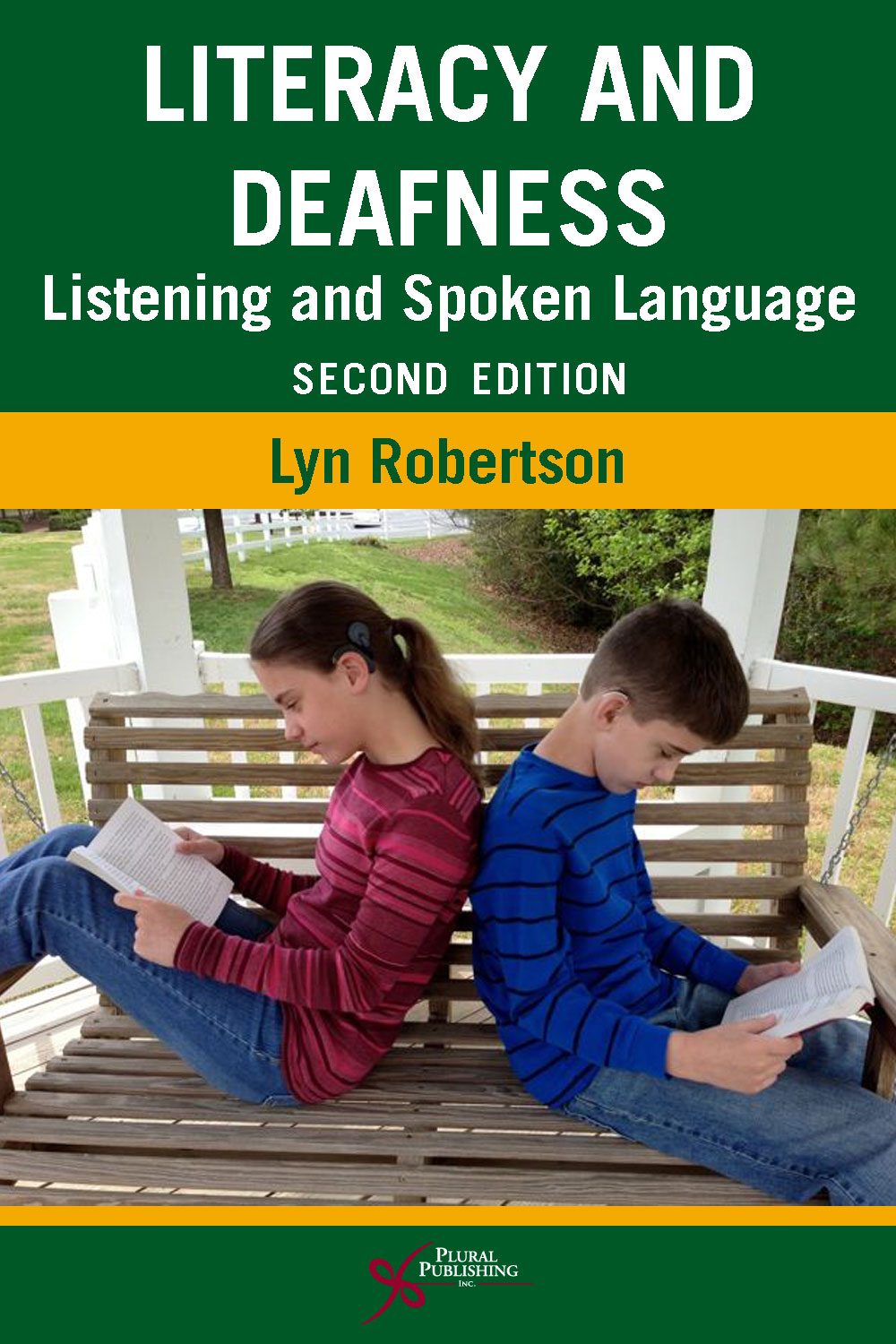
Literacy and Deafness: Listening and Spoken Language
Second Edition
Lyn Robertson
Details: 400 pages, B&W, Softcover, 6" x 9"
ISBN13: 978-1-59756-557-8
© 2014 | Available
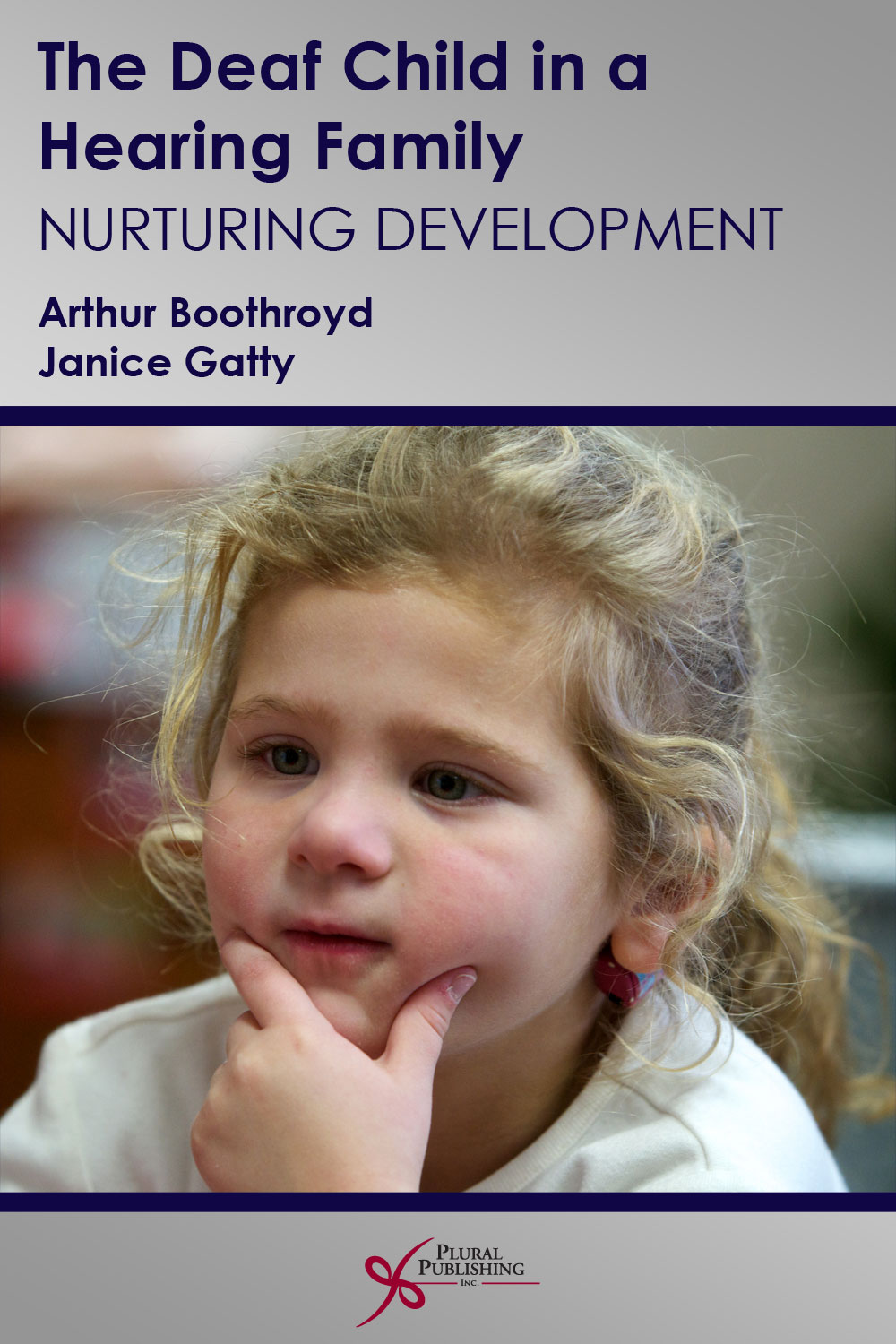
The Deaf Child in a Hearing Family: Nurturing Development
First Edition
Arthur Boothroyd, Janice Gatty
Details: 256 pages, B&W, Softcover, 6 x 9"
ISBN13: 978-1-59756-394-9
© 2012 | Available
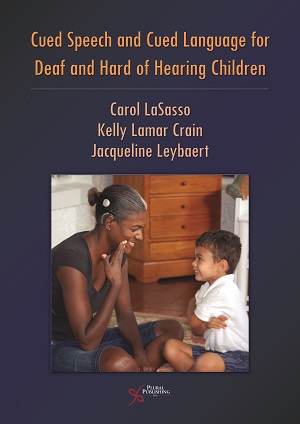
Cued Speech and Cued Language for Deaf and Hard of Hearing Children
First Edition
Carol LaSasso, Kelly Lamar Crain, Jacqueline Leybaert
Details: 606 pages, B&W, Softcover, 7" x 10"
ISBN13: 978-1-59756-334-5
© 2010 | Available
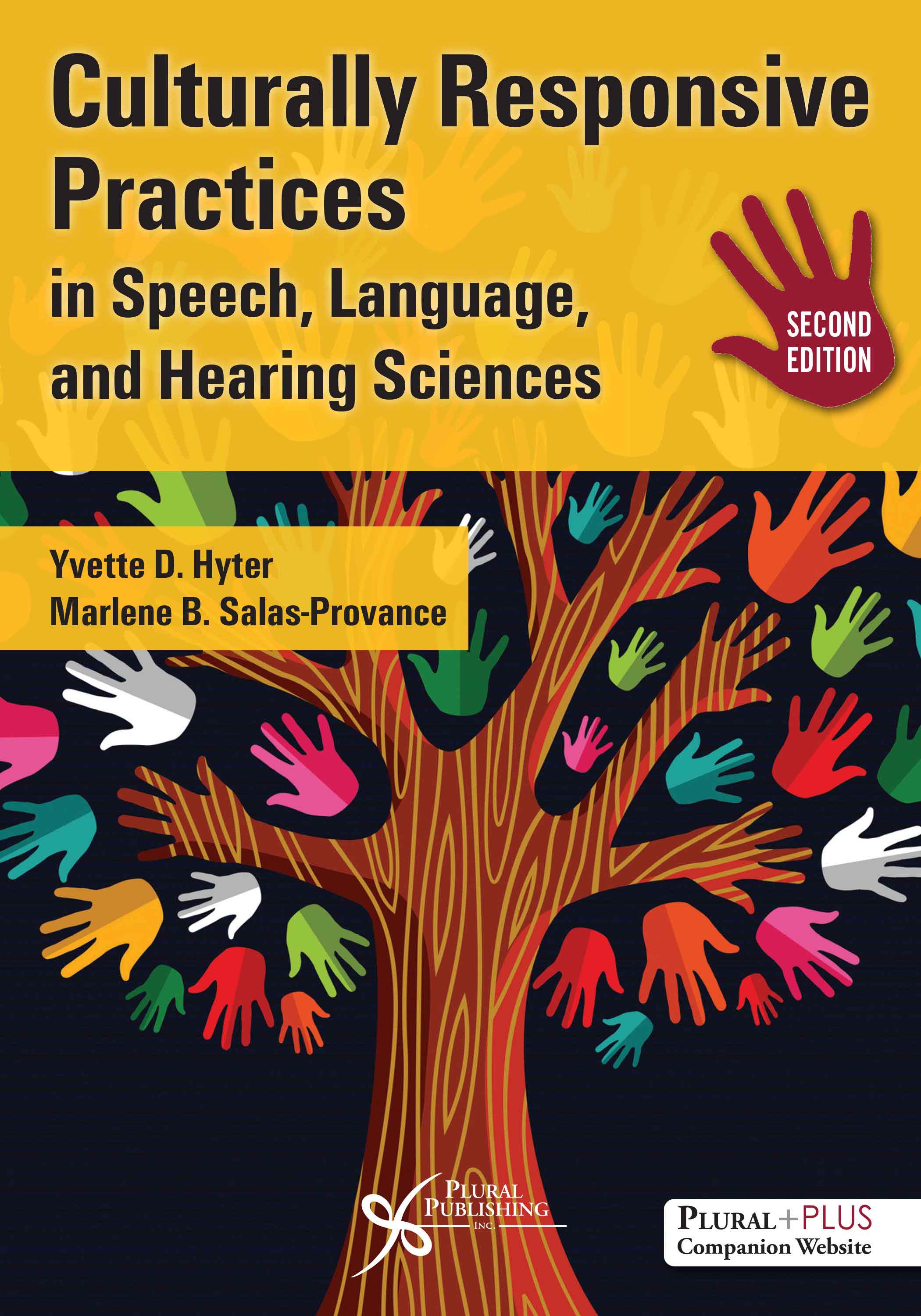
Culturally Responsive Practices in Speech, Language, and Hearing Sciences
Second Edition
Yvette D. Hyter, Marlene B. Salas-Provance
Details: 448 pages, B&W, Softcover, 7" x 10"
ISBN13: 978-1-63550-650-1
© 2023 | Available

